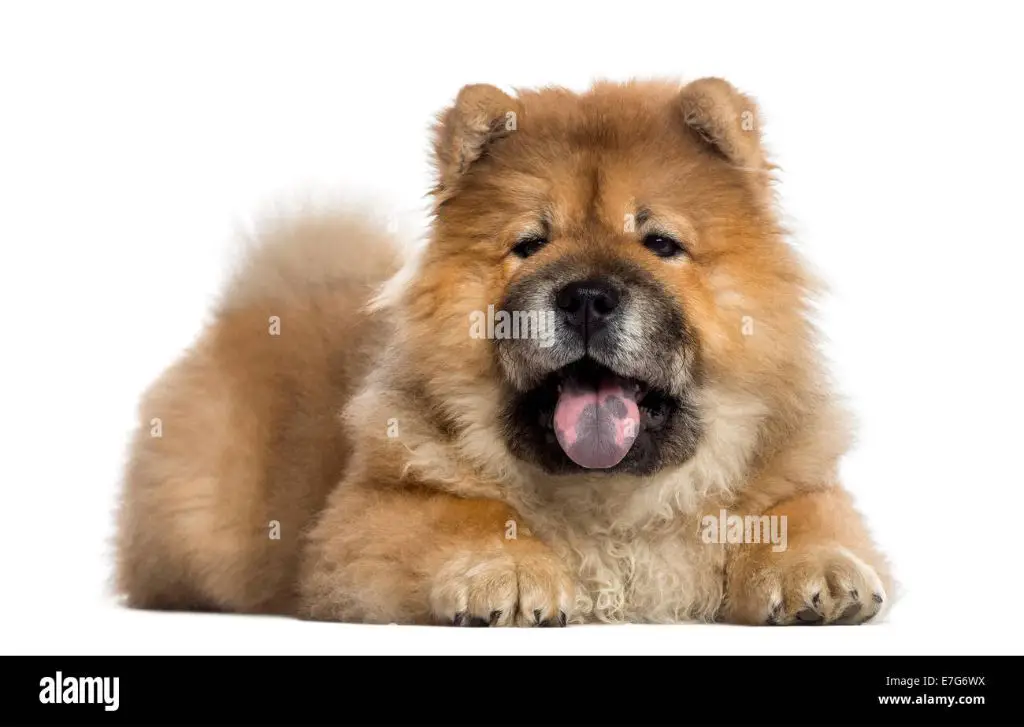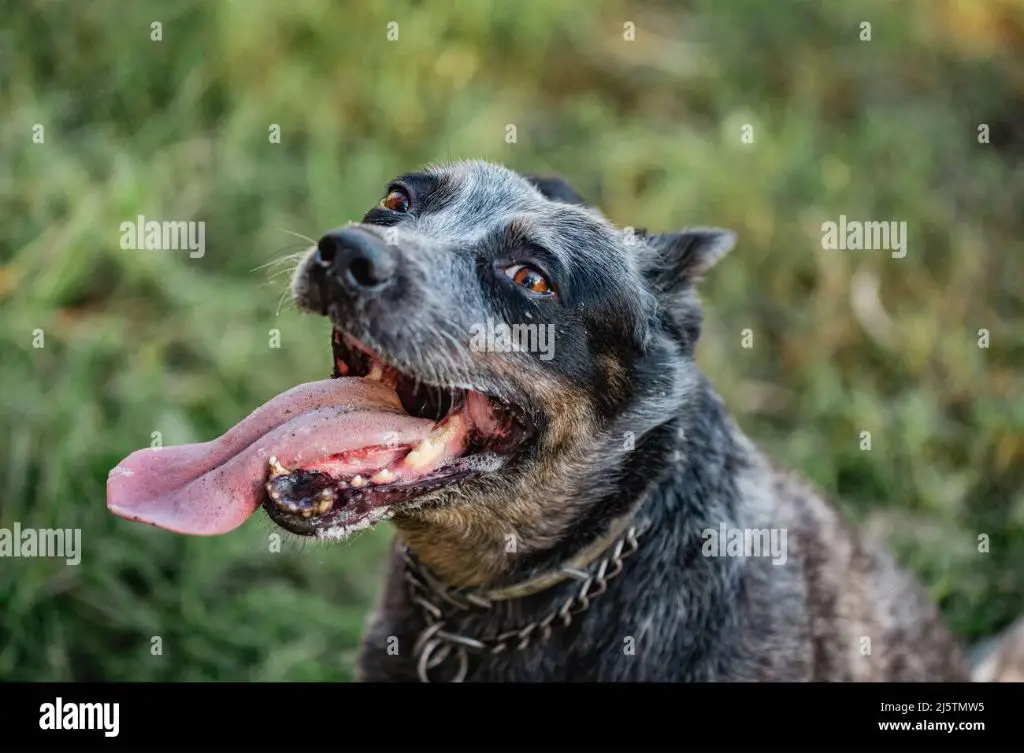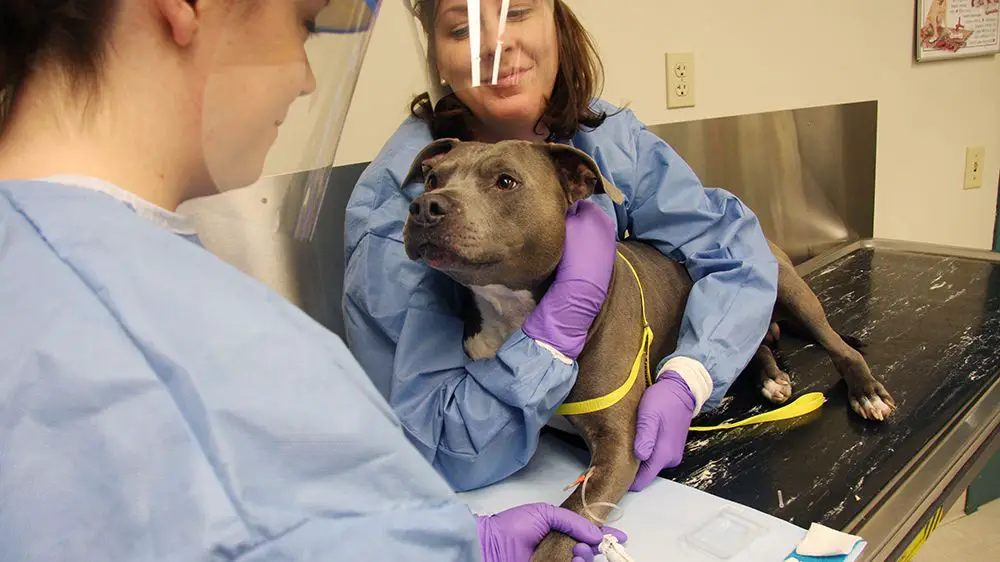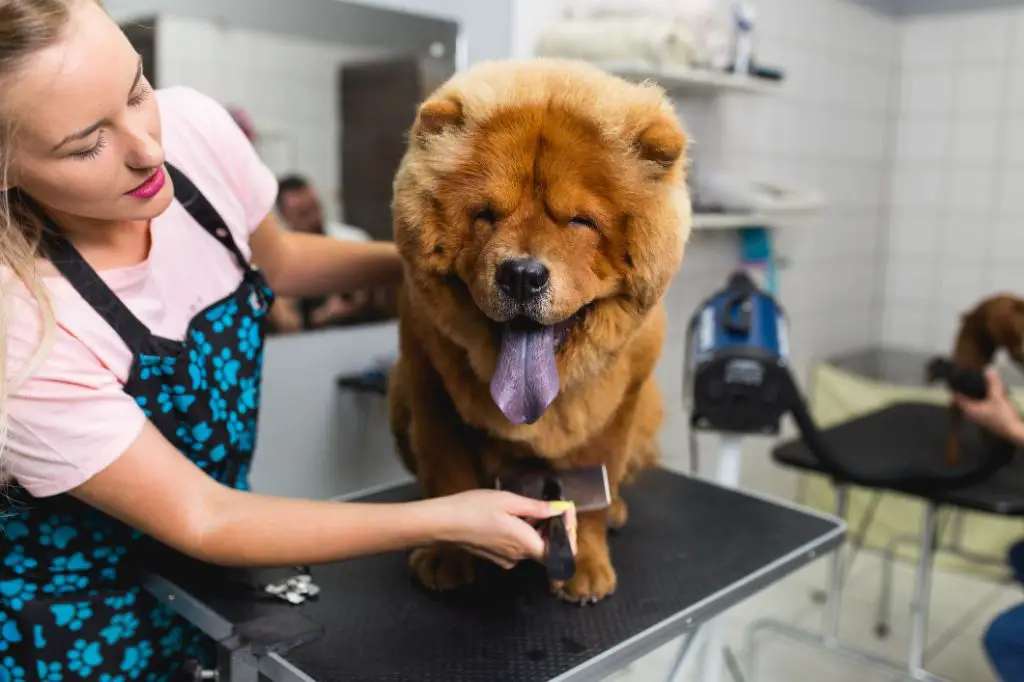Introduction
Many people know that chow chows have distinctive blue-black tongues. But are chows the only dogs that have black tongues? This is a common question for those interested in dog breeds and their unique traits.
In this article, we will explore what causes black tongues in dogs, look at the breeds that commonly exhibit this trait, discuss why chows specifically tend to have black tongues, cover health implications, provide care tips, share interesting facts, and ultimately answer the question of whether chows are the only dogs with black tongues.
What Causes Black Tongues in Dogs?
Black tongues in dogs are caused by extra pigment, which leads to additional melanin depositing in a dog’s tongue, mouth, and gums (source: https://www.rover.com/blog/black-tongue-dog/). This extra pigmentation, known as macromelanosomes, is what gives certain breeds black, blue, purple, or spotted tongues and mouths.
The amount of pigment deposited determines how dark the tongue will be. Dogs with minimal pigment will have just a few dark spots on their tongue, while dogs with lots of pigment may have completely black tongues (source: https://www.greatpetcare.com/dog-health/black-dog-tongue/). The pigmentation is generally benign and does not signify any health problems.
Genetics play a large role in which dogs develop pigmented tongues. Certain breeds, like Chows, are predisposed to having extra tongue pigment. However, any dog can develop a black tongue regardless of breed due to random genetic mutations.
Breeds with Black Tongues
While Chow Chows are the breed most associated with having black tongues, there are several other dog breeds that commonly have black or dark-colored tongues as well:
Some other breeds with trademark black tongues include:
- Shar Pei – Both traditional and miniature Shar Peis typically have a solid black tongue and gums [1].
- Chinese Shar-Pei – This ancient breed originating in China also has a bluish-black tongue [2].
- Chow Chow – The Chow is especially known for their black tongues and is the most common black tongue dog breed [1].
- Thai Ridgeback – This energetic hunting breed from Thailand often has a black tongue and mouth lining [2].
- Eurasier – Developed in Germany, the Eurasier combines Chow, Samoyed, and Wolfspitz bloodlines and can inherit the Chow’s black tongue [1].

There are many other breeds that may have black spotting or discoloration on their tongues, though a completely black tongue is rarer. Some other breeds occasionally exhibiting black tongues include
Other Dogs with Black Tongues
It’s a common myth that Chow Chows are the only dog breed with black tongues. While Chows and Chinese Shar-Peis require a solid black tongue by breed standard, other dog breeds can also occasionally have black tongues or black spots on their tongues (1).
Some examples of dog breeds that may have black tongues include:
- Australian Cattle Dogs – This energetic herding breed sometimes has a black spotted tongue (1).
- Belgian Malinois – The Malinois is used as police and military working dogs. Some members of the breed have black markings on their tongues (2).
- German Shepherd – Occasionally you may see a German Shepherd with black spots on its tongue, but it is not a breed standard (1).
- Great Danes – Some Great Danes can have black spots or markings on their tongues (1).
There are also mixed breed dogs that may display black tongues or spots since the gene can be inherited. Overall, while not common in most breeds, solid black or spotted black tongues can appear in many types of dogs beyond just Chow Chows.
(1) 37 Dogs With Black Tongues (Besides Chow Chows)

Why Chows Have Black Tongues
Chows have black tongues due to genetics. The gene that causes black pigment in a Chow’s tongue and mouth is dominant. This means that in order for a Chow to have a solid black tongue, they only need one copy of the gene from either parent. The gene codes for extra melanin production in the tongue and oral tissue during development, leading to darker coloration.
Specifically, there is a mutation in the melanocortin 1 receptor (MC1R) gene that is present in almost all Chows. This mutation causes overproduction of eumelanin, the pigment responsible for black/brown coloration. The excess eumelanin leads to a blue-black tongue.
This genetic trait originated many centuries ago in ancient Chinese dogs. Chow breeders selectively bred dogs with the black tongue trait when creating the modern Chow breed. Since the gene is dominant, the black tongue has remained fixed in the breed. It’s included as part of the American Kennel Club Chow breed standard.
While Chow mixes may have spotted tongues, purebred Chows will always have solid black tongues due to this genetic inheritance. Their black tongues are an iconic part of the breed’s physical appearance and genetic makeup.
Sources:
https://finance.yahoo.com/photos/6-dogs-known-black-tongues-114500004/
https://www.cesarsway.com/why-do-chow-chows-have-blue-tongues/
Health Implications
A black tongue is usually harmless in dogs and is not associated with any health issues. The dark pigment, also called pigmented macules or macroglossia, is considered normal for breeds like Chows and Shar Peis. However, there are some medical conditions that can cause a dog’s tongue to turn black or develop dark spots:
Melanoma – Cancerous oral melanomas can cause pigmentation on a dog’s tongue and mouth. Melanoma usually starts as a dark spot that grows over time. According to the Rover article, oral melanoma is most common in older dogs and certain breeds like Golden Retrievers.
Hyperpigmentation – Some autoimmune diseases like Addison’s disease, hypoadrenocorticism, and vitiligo can cause hyperpigmentation or excess melanin production. This can lead to black spotting on the tongue, gums, lips, nose, or skin.
Yeast infection – A chronic yeast infection called candidiasis can cause a black discoloration on the tongue. Candidiasis usually occurs secondary to another illness that weakens the immune system.

Chemotherapy side effect – Chemotherapy drugs like doxorubicin can cause the tongue to turn black. However, this is temporary and the discoloration fades once treatment is complete, according to Great Pet Care.
Overall, a solid black tongue is not considered unhealthy in breeds where it is normal. But any unusual spotting, lesions, or color changes could indicate an underlying issue worth getting checked out.
Care for Dogs with Black Tongues
Dogs with heavily pigmented tongues require similar care as any other dog. However, here are some tips for caring for dogs with a lot of tongue pigment:
Monitor hydration levels – Dogs with dark tongues may be prone to overheating, so provide ample fresh water and limit exercise on hot days (cite https://www.rover.com/blog/black-tongue-dog/).
Brush their teeth – Regular toothbrushing helps remove bacteria and maintain good oral health, especially important for dogs prone to heavy pigmentation in the mouth.
Watch for abnormalities – Seek veterinary advice if you notice any sores, growths, color changes or swelling of the tongue, as these may indicate an underlying health issue.
Protect from sun – Use dog-safe sunscreen or limit sun exposure to protect pigmented tongues vulnerable to sunburn or solar damage.
Keep the tongue moist – Try adding water to their food or offer ice cubes as treats to keep your dog’s dark tongue from drying out.
Choose appropriate toys – Select softer rubber or cloth toys to avoid injuring the tongue during playtime.
Provide tasty treats – Spoil your pup with tasty, lickable treats to keep the tongue active and engaged.
By following these tips, dog owners can help keep pups with black tongues happy and healthy.
Interesting Facts
There are some fascinating bits of trivia related to dogs with black tongues:
The Chow Chow breed is believed to be one of the oldest dog breeds in the world, dating back over 2,000 years to ancient China. Their all-black tongues are a defining characteristic of the breed (https://www.akc.org/dog-breeds/chow-chow/).
While black tongues are very common in Chows, no dog is born with a black tongue – Chow puppies are actually born with pink tongues! Their tongues begin to turn dark blue/black at around 8-10 weeks of age (https://wagwalking.com/behavior/why-do-chow-chows-have-black-tongues).

Some myths say black tongues indicate dog breeds that are more aggressive or dominant. However, there is no proven correlation between tongue color and temperament in dogs (https://www.thefarmersdog.com/digest/what-dog-breeds-have-black-tongues/).
Certain health conditions like Addison’s disease can cause a dog’s tongue to turn blackish. But typically, black tongues in breeds like Chows are totally normal and not a health concern (https://www.petmd.com/dog/conditions/digestive/c_multi_black_tongue).
While less common than solid black tongues, some dogs have black spots or patches on their tongues. This is also a normal variation (https://wagwalking.com/condition/black-spots-on-dogs-tongues).
Conclusion
In summary, while chows are well known for having black tongues, they are not the only dog breed that exhibits this unique trait. Several other breeds, including the Chinese Shar-Pei, the Chow Chow, the Tibetan Mastiff, and the Thai Ridgeback, also commonly have black tongues. Additionally, mixed breed dogs that have ancestry including these breeds may display black tongues as well. The black pigmentation in these breeds stems from high levels of melanin. While mostly a harmless trait, dog owners should be aware that black tongues may denote health issues in other breeds. Proper oral care and vet checkups help ensure your dog’s tongue is healthy, regardless of color. So while chows and other Asian breeds are certainly associated with black tongues, they do not own exclusive rights to this signature feature.
References
Lorem ipsum dolor sit amet, consectetur adipiscing elit. Sed euismod, nisl nec tincidunt luctus, nunc nisl aliquam massa, eget aliquam nisl nunc eu nisi. Morbi turpis nisl, tincidunt nec congue et, aliquam ac nunc. Pellentesque habitant morbi tristique senectus et netus et malesuada fames ac turpis egestas. Donec fringilla arcu sed erat molestie lobortis. Aenean vel mauris vulputate, euismod velit sed, convallis orci. Etiam faucibus venenatis felis, ac lobortis eros condimentum sit amet.
Fusce sed ante sollicitudin, aliquam velit nec, vestibulum ex. Donec finibus eros ac ipsum mattis, sed varius velit euismod. Praesent quis orci ornare, maximus risus ut, facilisis justo. Vestibulum congue ut massa sit amet feugiat. Vivamus imperdiet elit ac lacus dictum rutrum. Sed congue et leo ut tempor. Phasellus ex erat, accumsan quis ultrices eu, sagittis ut erat.
Duis luctus libero vel leo consequat, a posuere lectus tincidunt. Etiam sit amet convallis odio. Donec in consequat neque, at consequat libero. Sed finibus ante sit amet felis pulvinar, quis ultricies ipsum laoreet. Vivamus dictum justo a libero aliquet, vitae tincidunt risus volutpat. In hac habitasse platea dictumst. Pellentesque habitant morbi tristique senectus et netus et malesuada fames ac turpis egestas. Maecenas vel vehicula ipsum. Pellentesque nec sapien sollicitudin, pulvinar odio at, varius ex.
